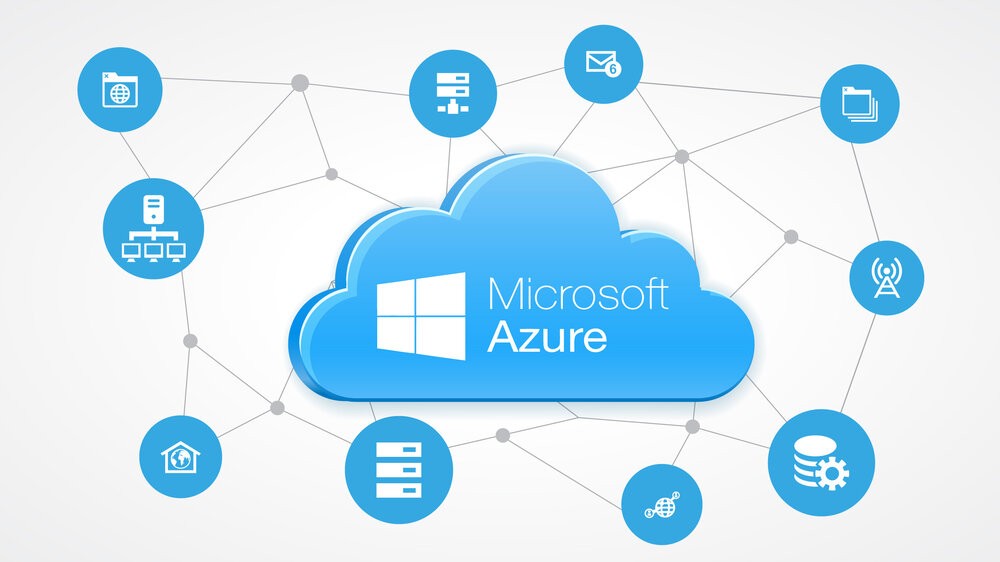Cloud computing has dramatically changed how businesses operate, offering new ways to innovate, scale, and compete in an increasingly digital world. At the forefront of this transformation is Microsoft Azure, one of the most powerful and comprehensive cloud platforms available today.
Whether you’re a startup, a growing mid-sized business, or a large enterprise, Azure offers solutions that can be tailored to meet your specific needs. From virtual machines to advanced data analytics and AI, Azure is a robust ecosystem that helps businesses reduce costs, improve performance, and stay secure.
For organizations in the Middle East, particularly in the UAE, adopting cloud solutions like Azure Security Solutions Dubai is more critical than ever. With increasing regulatory requirements and rising cybersecurity threats, investing in secure, scalable infrastructure is essential to protecting business data and ensuring business continuity.
But before jumping in, it’s important to understand what Azure is, what it offers, and how it can benefit your organization.
What is Microsoft Azure?
Microsoft Azure is a cloud computing platform developed by Microsoft that provides a wide array of services, including computing power, networking, databases, storage, analytics, and development tools. Businesses use Azure to build, test, deploy, and manage applications through Microsoft-managed data centers located all around the world.
The key advantage of Azure is flexibility. It supports various programming languages, operating systems, frameworks, and tools. Whether you’re running Windows, Linux, Python, Java, or .NET, Azure can accommodate your environment. This makes it easier for organizations to transition to the cloud while leveraging their existing assets and skills.
Azure is also known for its pay-as-you-go model, allowing businesses to only pay for what they use. This is ideal for companies looking to control costs while scaling operations efficiently.
Why Should Businesses Consider Azure?
Azure offers a compelling set of features and benefits that make it a top choice for businesses across industries:
1. Scalability:
Azure allows you to scale resources up or down based on demand. Whether you’re dealing with seasonal traffic spikes or rapid growth, Azure ensures your systems are always running smoothly.
2. Cost-Effectiveness:
You can avoid large upfront investments in hardware and only pay for the services and resources you actually use. Azure also offers various pricing models and reserved instances to help optimize long-term costs.
3. Security:
Azure is built with multi-layered security across physical data centers, infrastructure, and operations. Microsoft invests over a billion dollars annually into security and employs over 3,500 cybersecurity experts.
4. Hybrid Capabilities:
Azure offers hybrid cloud solutions, allowing businesses to bridge on-premises environments with the cloud. This is especially useful for companies that are not ready to go fully cloud-native.
5. Global Reach:
With more than 60 data center regions worldwide, including local options in the Middle East, Azure ensures your services are delivered with minimal latency and comply with data residency regulations.
Cloud Security and Identity Management
Security is one of the most critical considerations when moving to the cloud. Azure provides enterprise-grade security features, from threat detection to advanced data encryption, to ensure your digital assets are safe.
In particular, identity and access management (IAM) is a major area of concern for most organizations. As businesses grow and adopt more cloud services, managing who has access to what becomes increasingly complex. Without a solid IAM strategy, you risk unauthorized access, data leaks, and compliance violations.
That’s where Azure Identity and Access Management Dubai solutions come in. These services allow you to manage digital identities, enforce access policies, and control permissions across your organization. You can implement single sign-on (SSO), multifactor authentication (MFA), and conditional access to ensure only authorized users can access sensitive systems and data.
By managing identities centrally, businesses not only improve security but also reduce the time and effort spent on IT administration. It enables seamless collaboration, especially for remote and hybrid work environments, without sacrificing control.
Key Azure Services Every Business Should Explore
There are hundreds of services within Azure, but a few stand out as foundational for most organizations:
Azure Virtual Machines (VMs):
Run applications or host services using Windows or Linux virtual machines with full control over configurations.
Azure Blob Storage:
Store large amounts of unstructured data images, video, backups in a cost-effective and scalable way.
Azure SQL Database:
A fully managed relational database that supports SQL Server capabilities in the cloud, ideal for running mission-critical applications.
Azure Functions:
A serverless compute service that lets you run event-driven code without managing servers, great for automating processes or responding to system triggers.
Azure Active Directory Services Dubai:
This identity service provides a robust platform for managing users, groups, and access controls across cloud and on-premises environments. It integrates with thousands of SaaS applications and helps protect users with advanced identity protection tools.
Common Business Use Cases for Azure
Azure is widely adopted across industries and supports a range of use cases, such as:
Disaster Recovery and Backup:
Azure provides automated backup and site recovery solutions that protect your data and applications from unplanned outages.
Data Analytics and Business Intelligence:
Azure offers powerful tools like Azure Synapse Analytics and Power BI to help businesses analyze vast amounts of data and make informed decisions.
Application Development and Hosting:
Whether you’re building customer-facing apps or internal tools, Azure supports DevOps workflows, APIs, and containerized deployments.
Artificial Intelligence and Machine Learning:
With Azure Cognitive Services and Machine Learning Studio, businesses can infuse AI into applications to gain competitive advantages in automation and customer engagement.
Getting Started with Azure
For many businesses, starting small is the best approach. You might begin by moving email servers to the cloud, using Azure for data backup, or hosting a single application. From there, you can scale based on evolving needs.
The key steps include:
-
Defining your business goals for cloud adoption
-
Assessing your current infrastructure
-
Identifying priority areas for migration or improvement
-
Choosing the right Azure services
-
Partnering with a knowledgeable service provider for implementation and support
Final Thoughts
Azure is more than just a cloud platform—it’s a catalyst for digital transformation. It offers a flexible, secure, and scalable solution for businesses looking to modernize their IT infrastructure and remain competitive in an increasingly digital economy.
If you’re considering moving to the cloud or optimizing your existing cloud environment, partnering with a reliable local expert like SK Technology can help guide you through the process with minimal risk and maximum return on investment.
Microsoft Azure opens up countless possibilities. The sooner your business taps into its potential, the better positioned you’ll be to innovate, grow, and lead in your industry.



